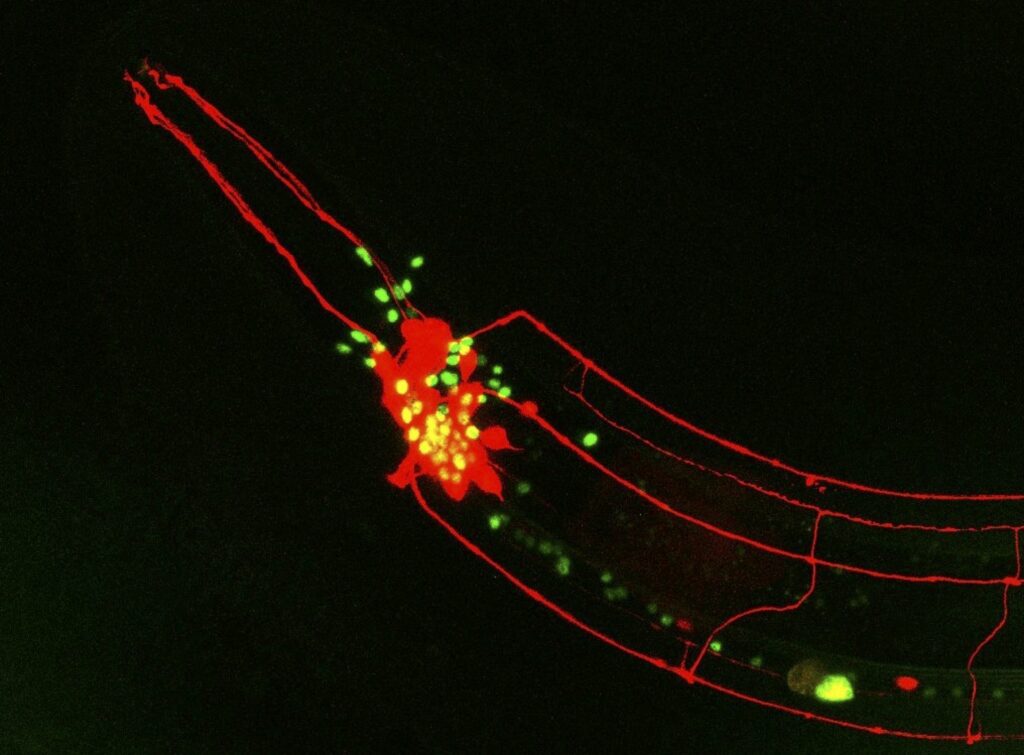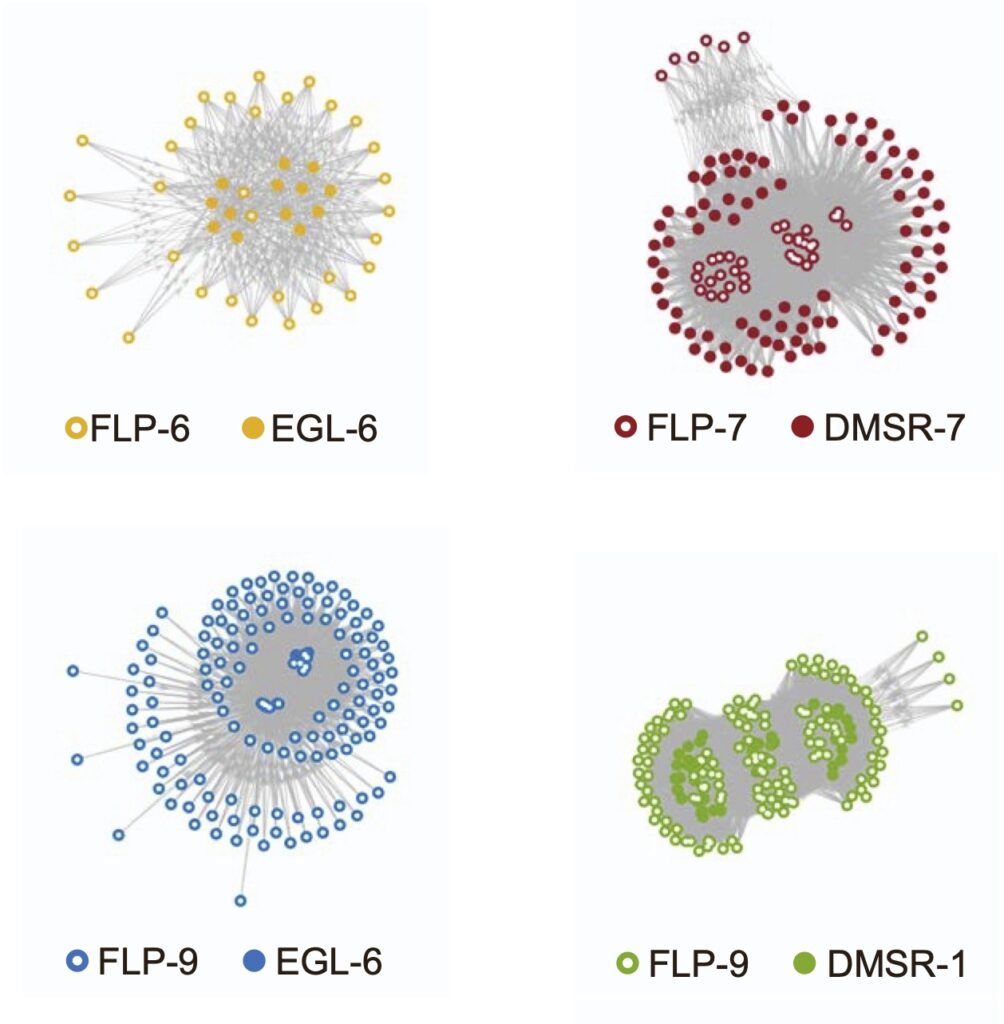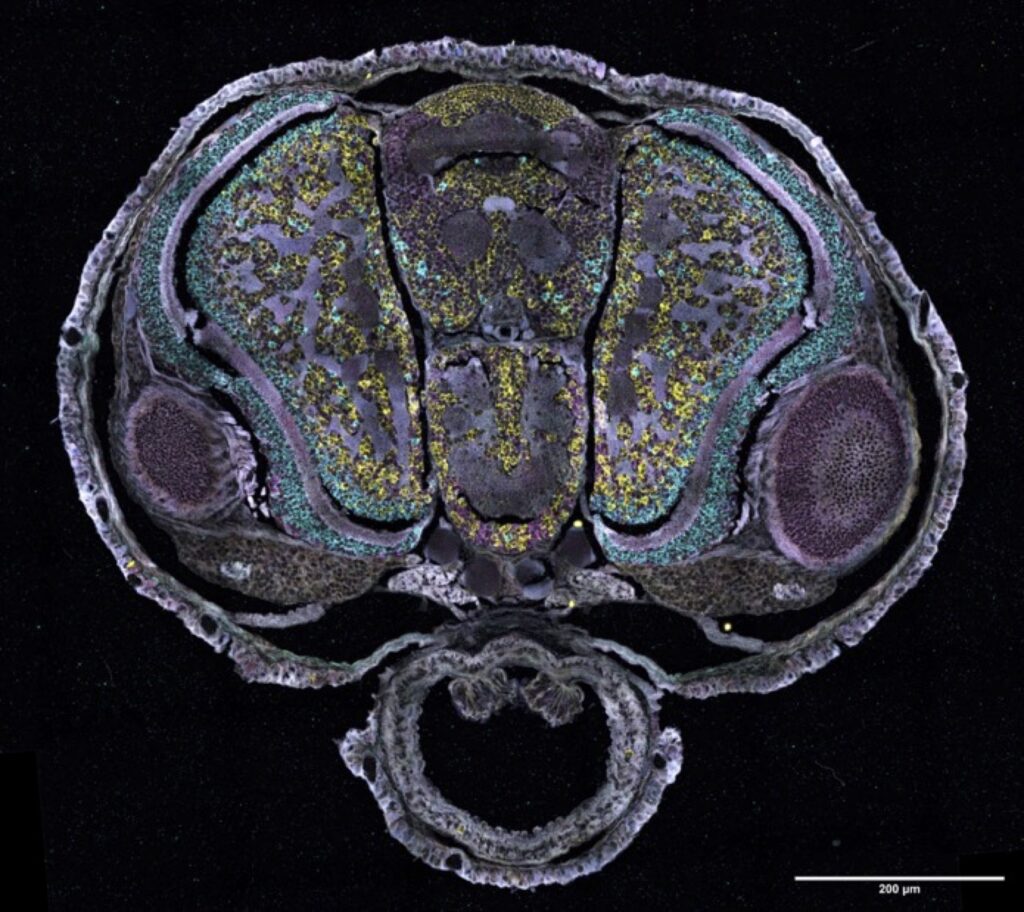Discovering the mechanisms by which nervous systems process information and generate behaviour is among the fundamental problems of biology. Ultimately, we would like to understand these processes at the most basic level, that of molecules and cells.
Genetic analysis of behaviour in C. elegans

Through work focusing in the nematode C. elegans, our lab has made technological, experimental and conceptual contributions to understanding the genetic and neural basis of behavior. We have developed and applied methodologies, in particular optogenetic neuroimaging and high-content behavioral phenotyping, and used them to gain new insight into ion channel diversity and function, the organisation of neural circuits and peptidergic modulation of behavioural states. We currently collaborate with Isabel Beets and Liesbet Temmerman on some of this work.
Network studies of neural connectomes

We have also developed a more general interest in using insights from network science to understand how neuronal signaling networks are organised and how the structure of neural connectomes relates to their function. We have used the small synaptic connectome of C. elegans to test theoretical frameworks that may help us understand larger connectomes, including the human brain. We have also to comprehensively mapped neuropeptide signaling pathways across the entire nematode nervous system; this “wireless” connectome serves as a prototype for understanding neuromodulatory signaling in larger brains. We have collaborated closely with Petra Vértes on this work.
Molecular neuroscience in Octopus

Recently, we have become interested in understanding more complex brains, in particular that of the cephalopod Octopus vulgaris. Although octopus show remarkable intelligence and complex behaviour, the octopus brain is thought to have evolved completely independently from our own. Relatively little is known about the structure of this “alien” brain, particularly at the level of molecules and microcircuits. We are using our expertise in molecular physiology, optical neuroimaging, and quantitative behavioural analysis to probe the function of octopus visual circuits, focusing on the tractable but poorly-understood hatchling stage. We collaborate closely with Eve Seuntjens on this work.
Funding
We have received generous support over the years from various funders. Currently we are supported by the Medical Research Council/UKRI (MC-A023-5PB91), Research Foundation Flanders/FWO (G050825N, G079521N, ), and the KU Leuven BOF/Bijzonderonderzoeksfond (C14/21/065, GSF/25/024)